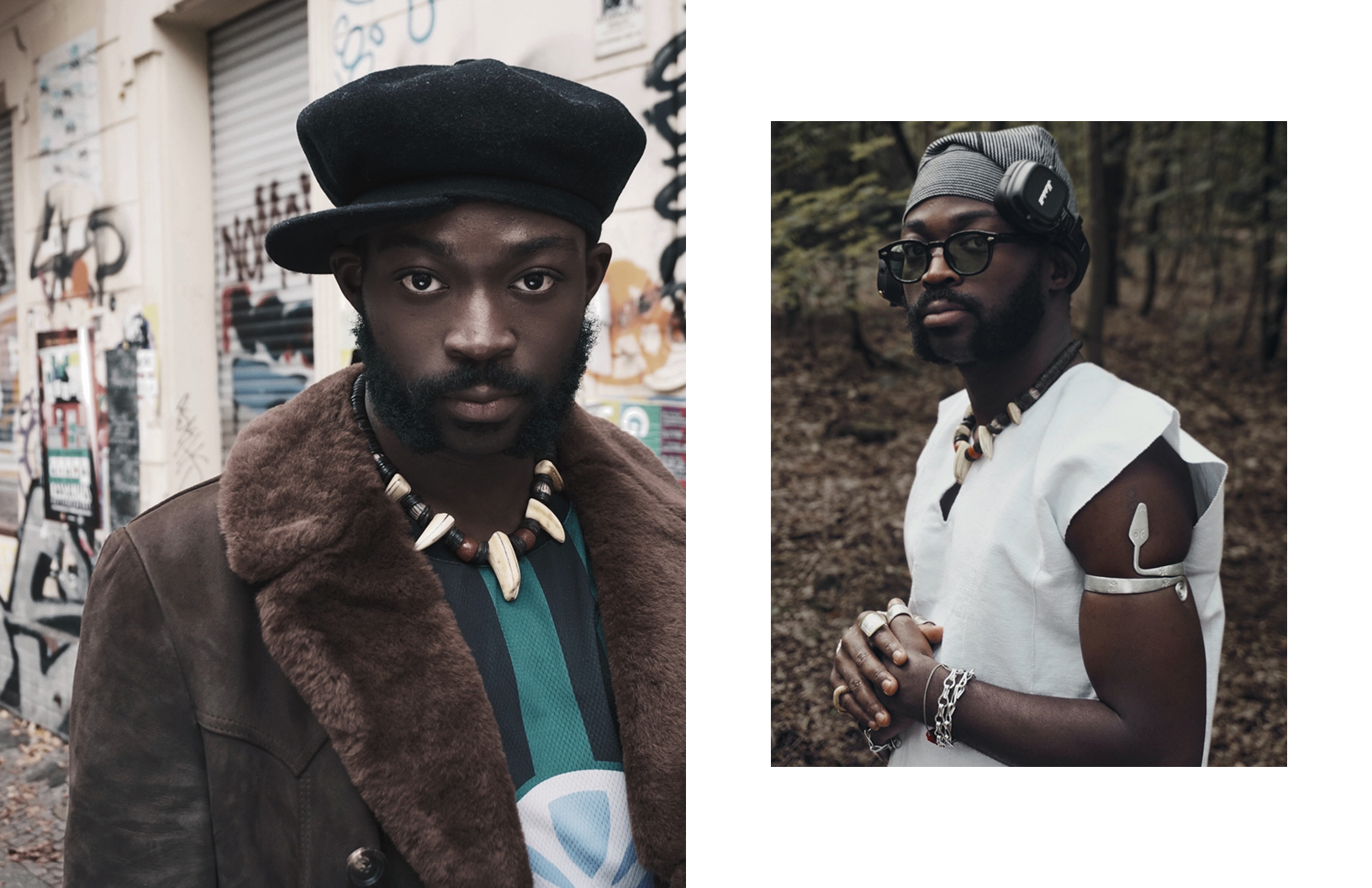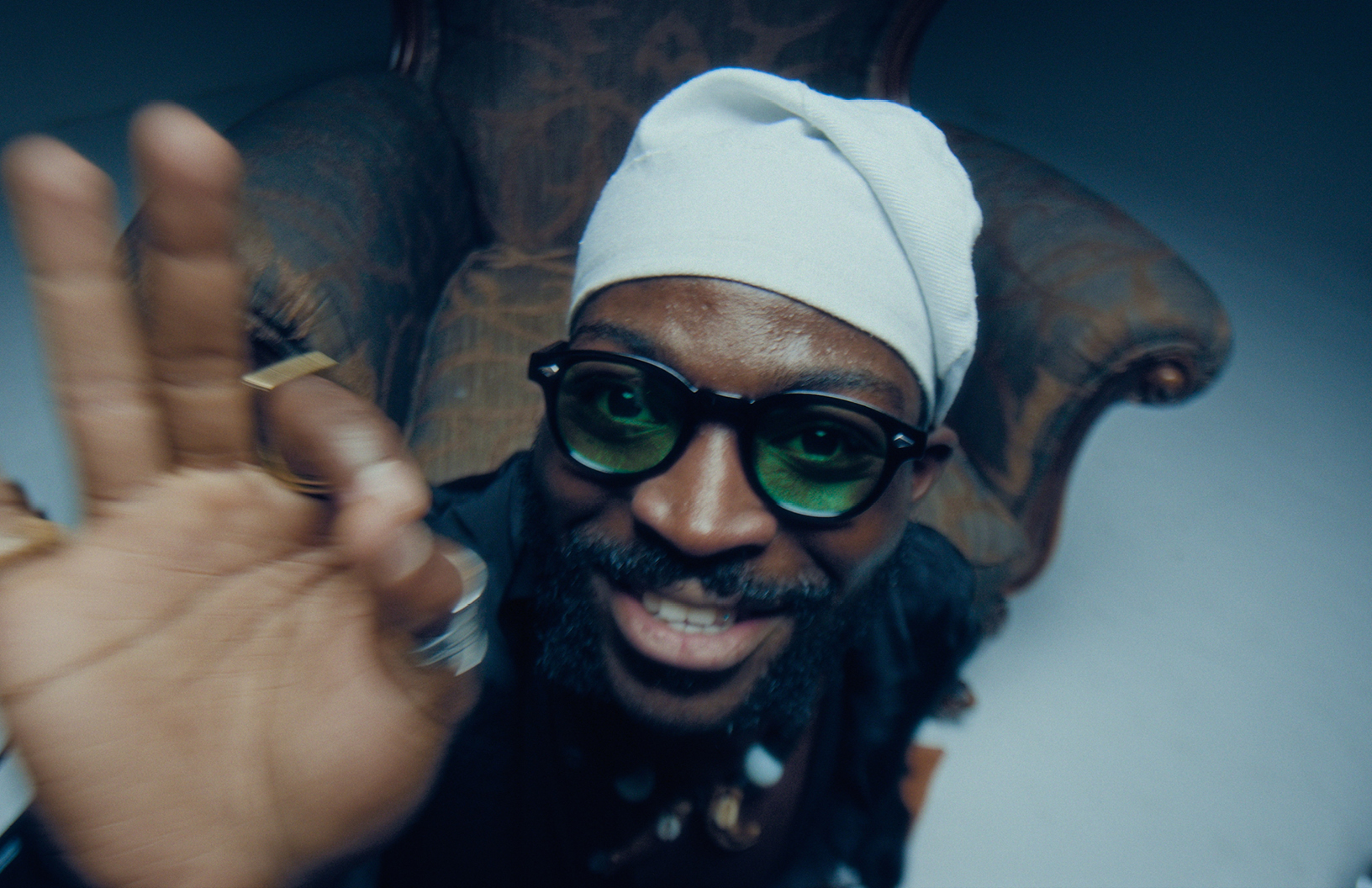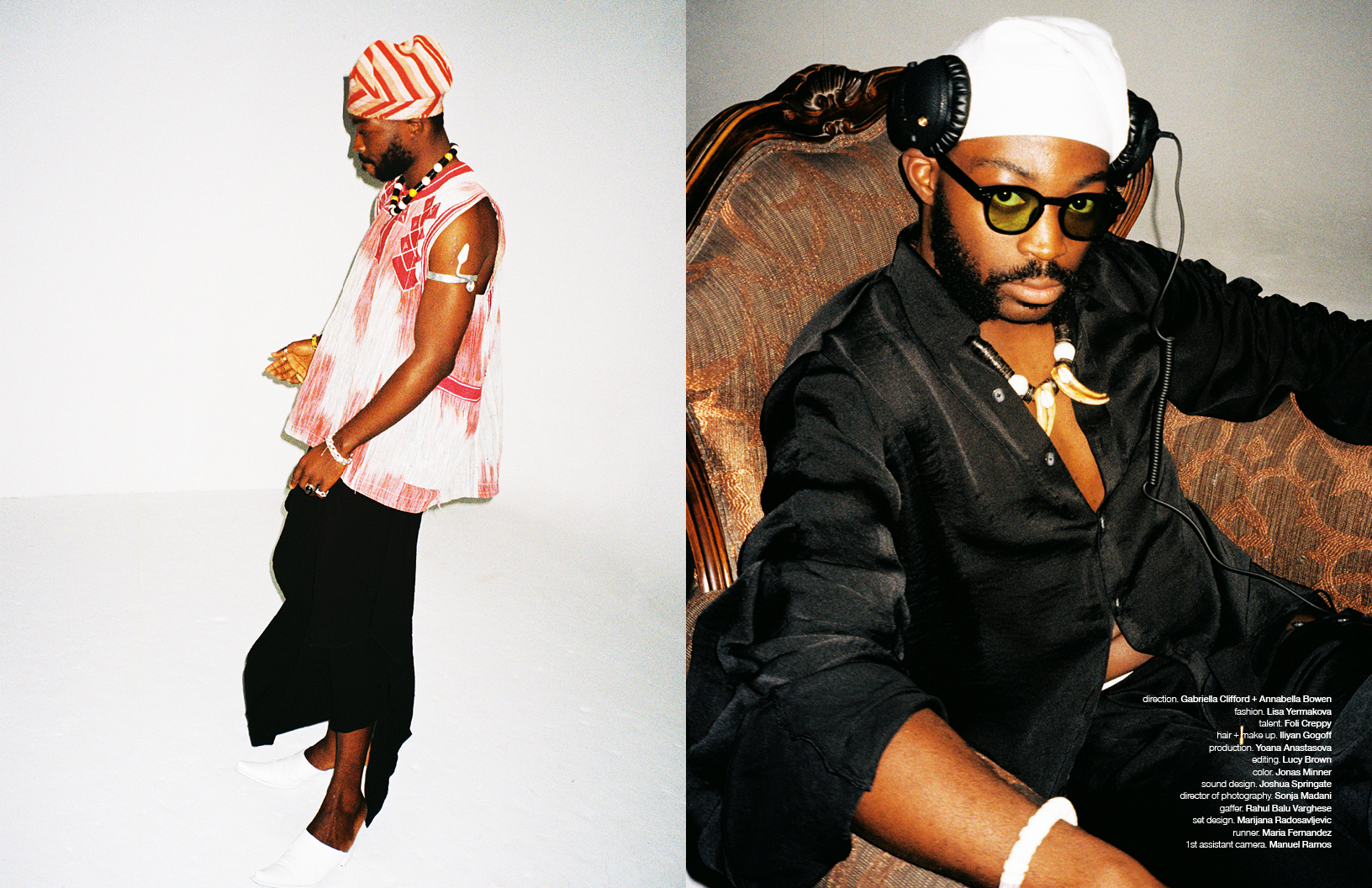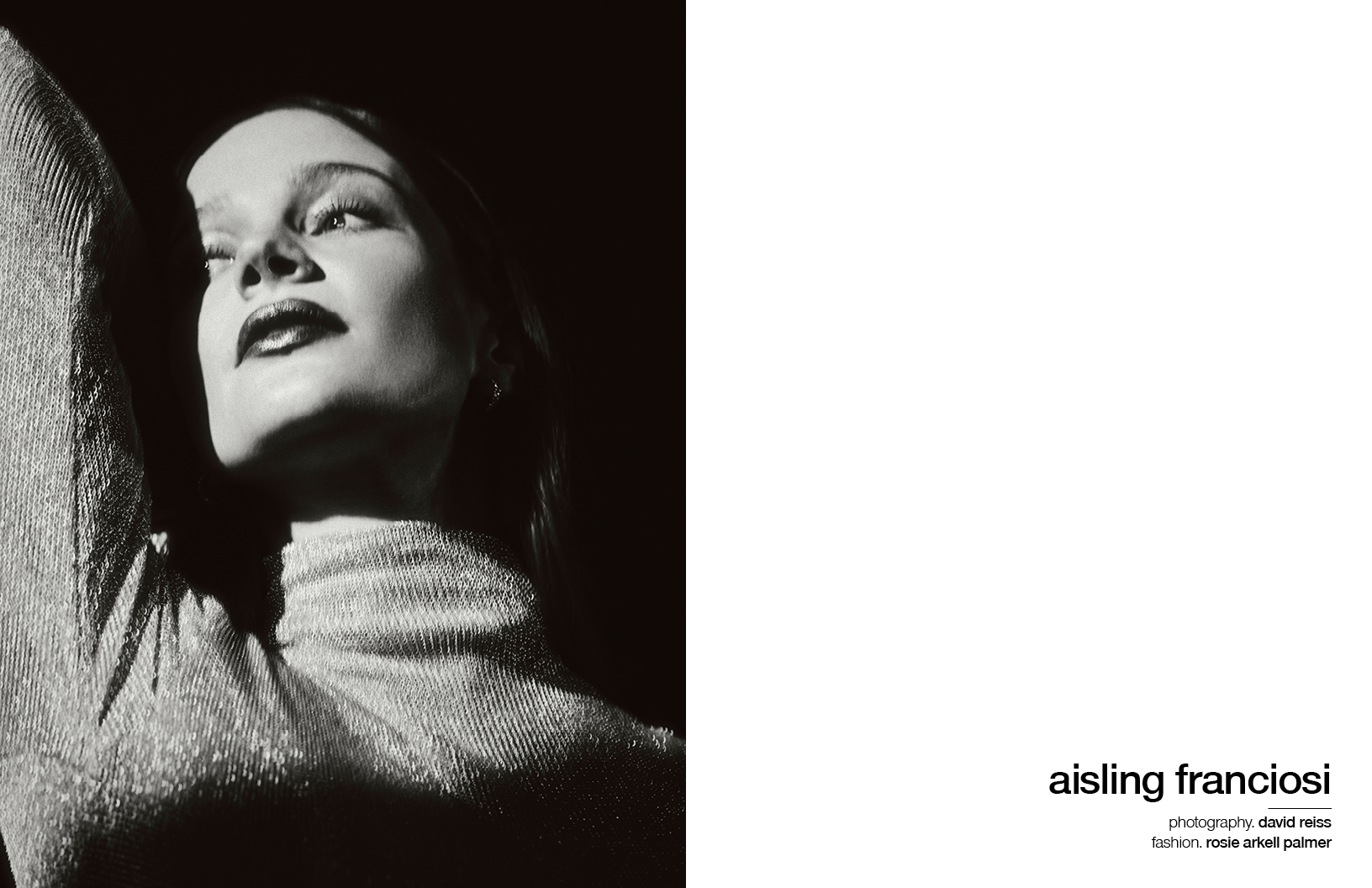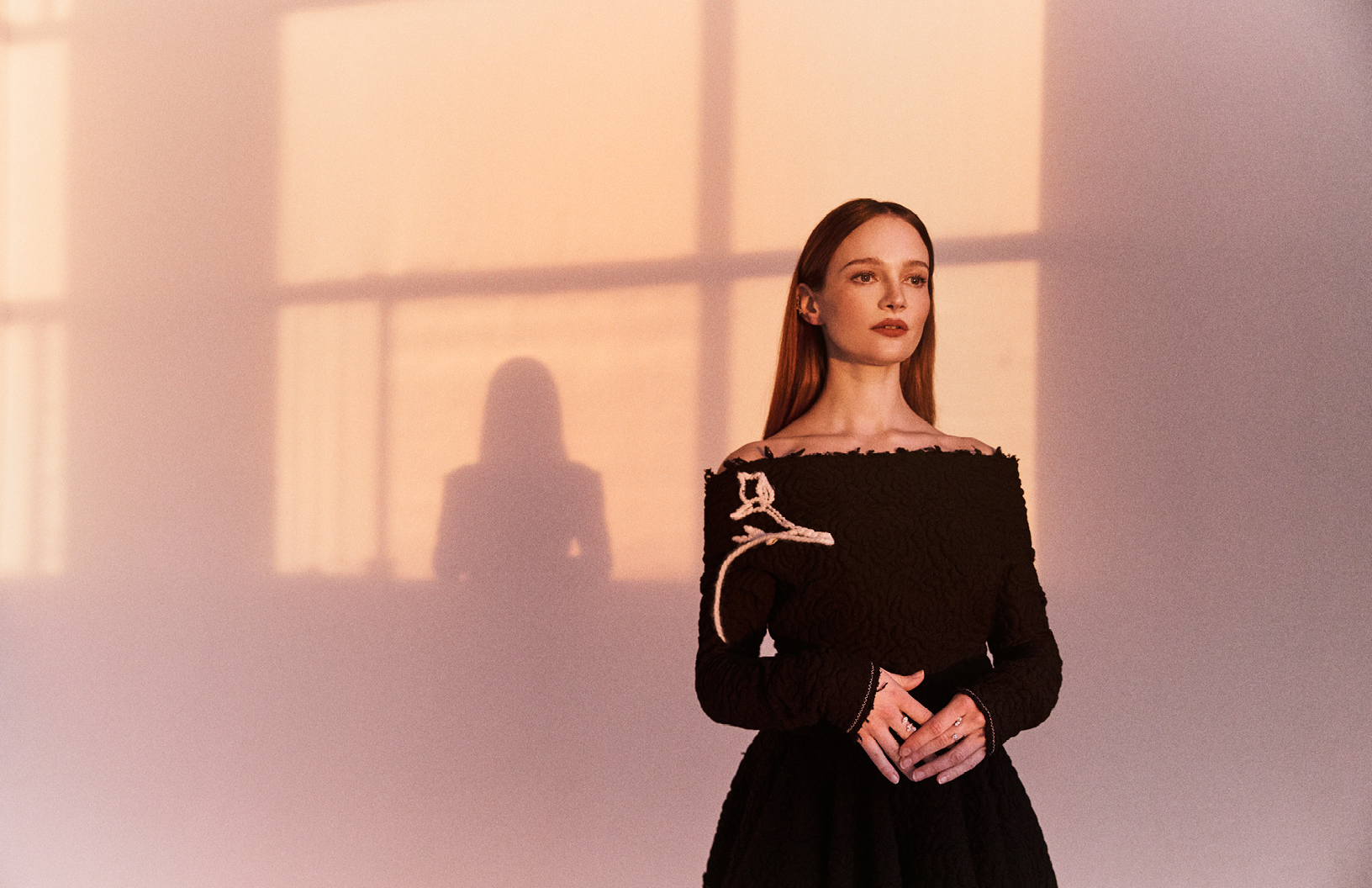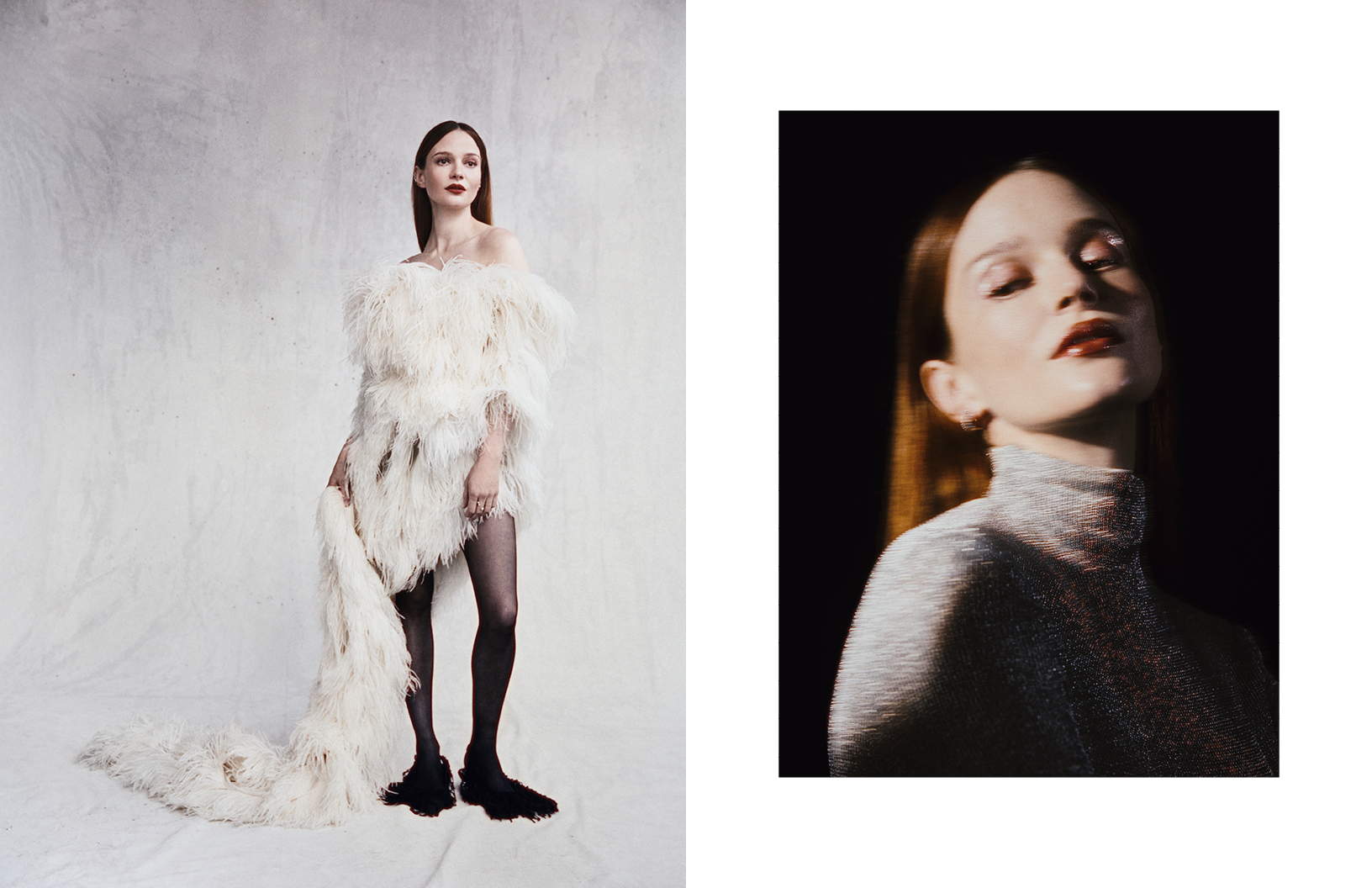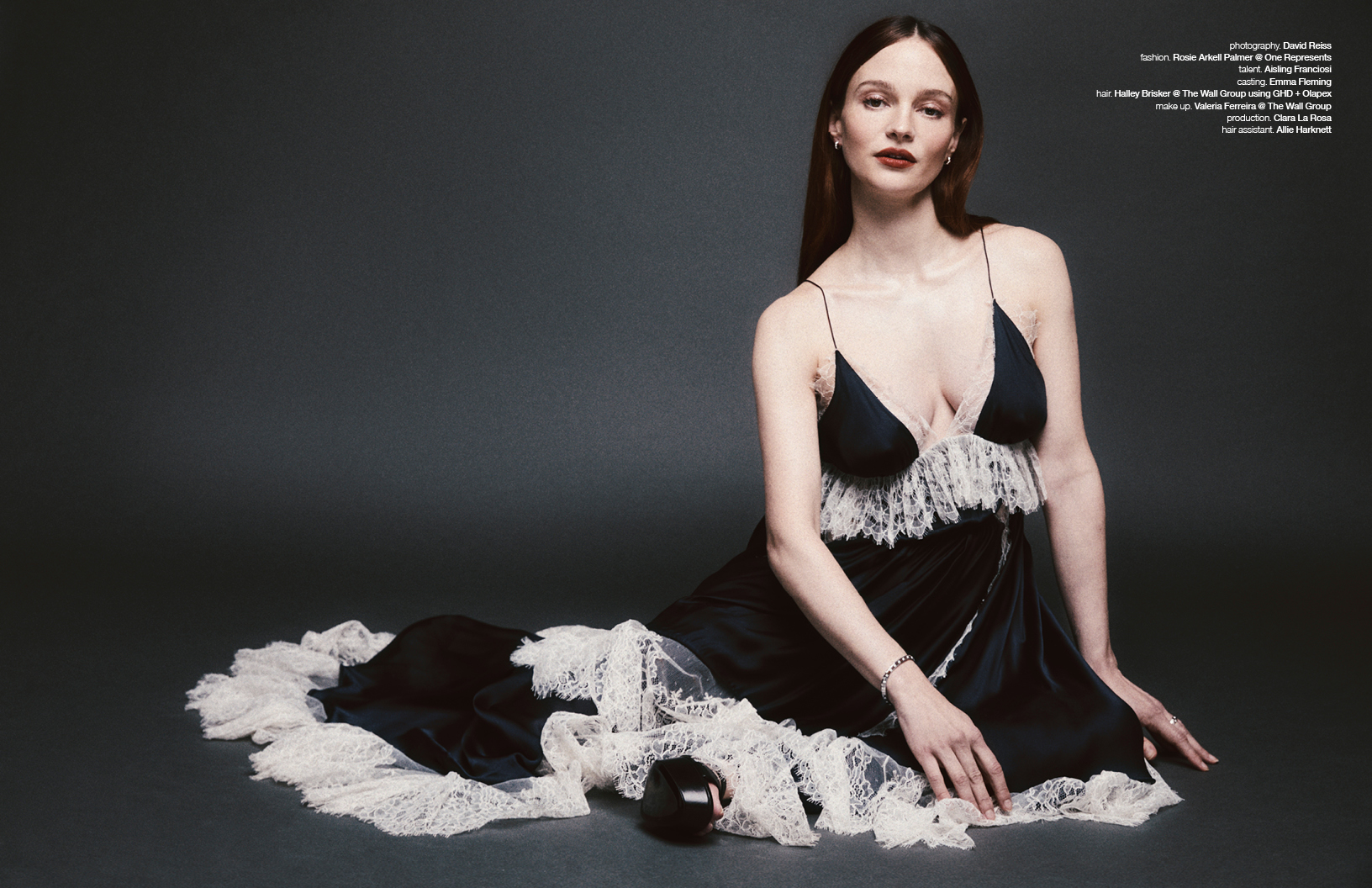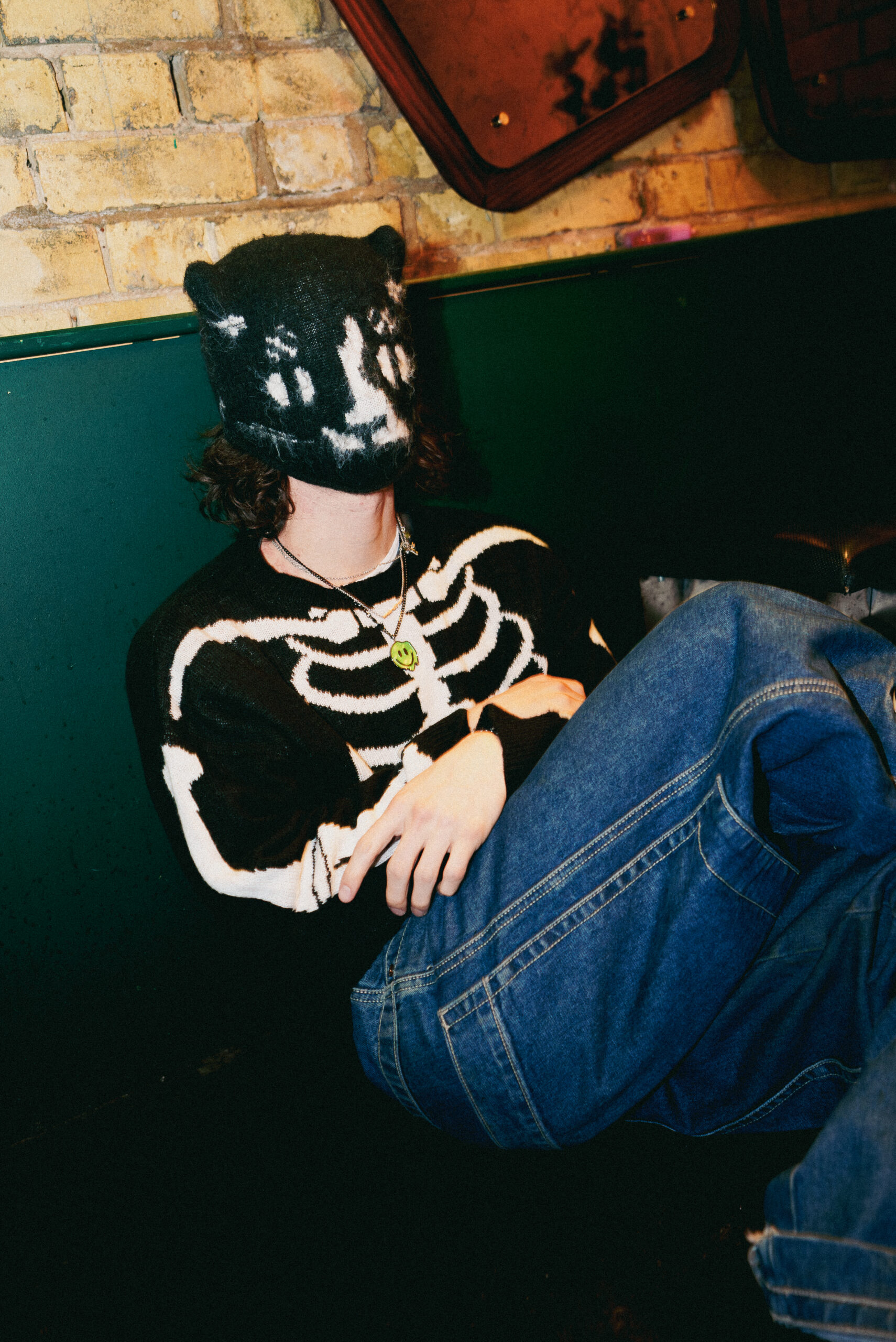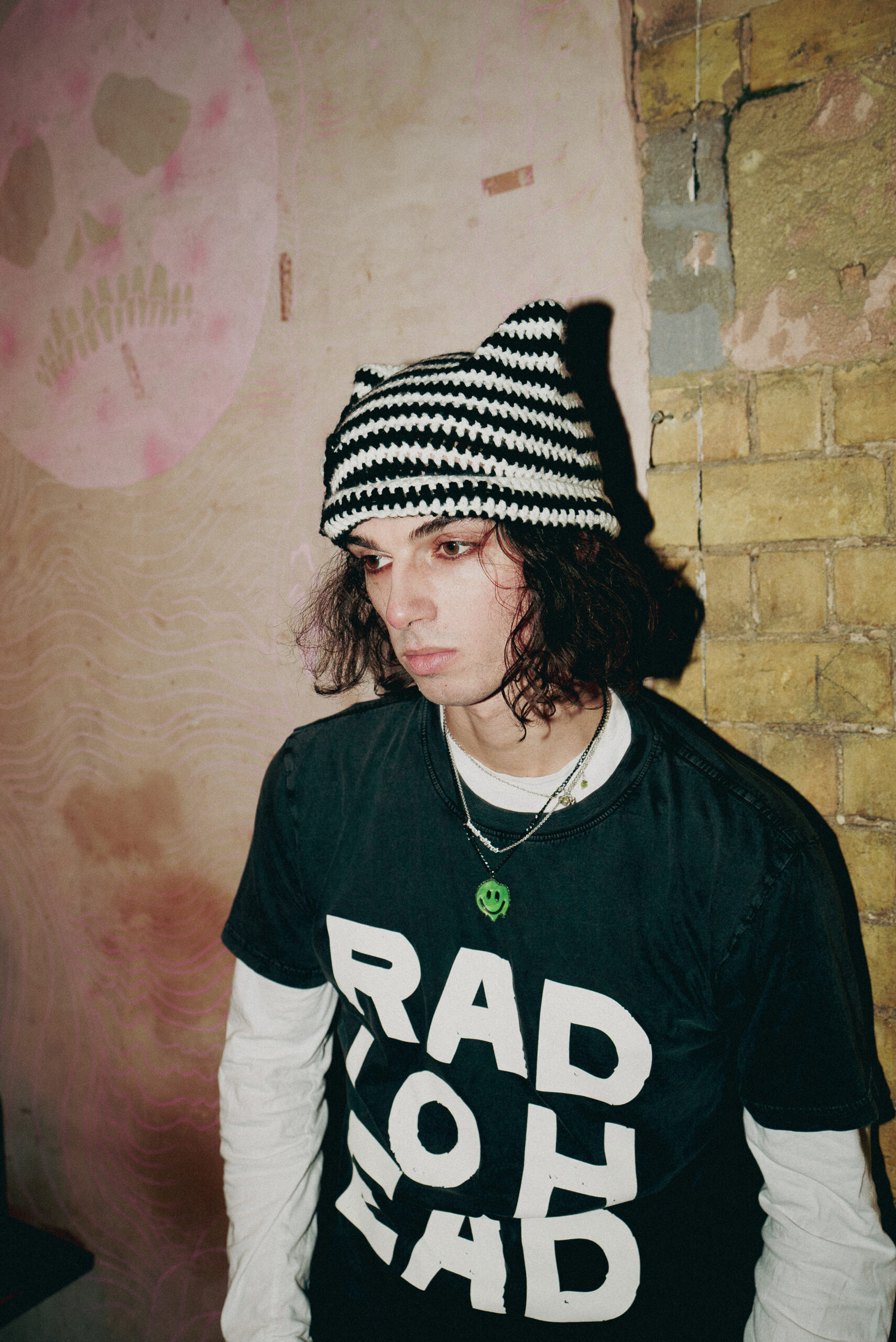“Take your time” is an advice we all should live by, but somewhere in transition, we all get a bit lost. The importance of unwinding is seen as a secondary priority when days are heavy, and this kind of mindset is exactly what 21-year-old model, actress and director Florence Kosky, represented by Models 1, aims to change with her new film ‘All The World’s a Stage’. The Dorset-born started her career whilst still a young teenager, posing as a model for brands like Blueberry and publications like L’Officiel, but her passions went far beyond. After starring in multiple shorts, Kosky became curious about the world behind the lens, and decided to undertake this path with her Best British Short award-winning directorial debut, ‘The Otherworld’. And now, the multi-talented just launched her newest short as an effort to help raise awareness about suicide for Mental Health Awareness Week.
Inspired by a poem her friend wrote when their mutual friend committed suicide, her film comes to live from a much more powerful influence than her own experiences. With ‘All The World’s a Stage’, Kosky is combining her co-workers heartbreaking stories into an unique life metaphor, showing an agonising connection between each of their diverse experiences. Ambassador of the Mental Health Foundation, Florence Kosky opens up to Schön! about the importance of knowing and understanding mental health, talking through the process of making her new film, and underlining its message.
Your film, ‘All The World’s a Stage’, is centred around a metaphor. How did you come up with the idea?
The theatre as life metaphor already existed in the poem I used for the narrative. (And of course, that as an analogy has been around since Shakespeare’s As You Like It, as referenced by the title of the film). So for me, it was more a case of taking it a step further with the visuals and pushing it as far as it could go with that whilst still being true to Charlie’s words. It kind of allowed for mini metaphors within a big one, which was fun to play with. If you look at the costume and set then there are lots of little details that are very symbolic. The use of flowers on the lead’s costume is probably my favourite element of this; each of the flowers used and their placement have a very specific meanings and so they reflect what’s happening with his mental state throughout the film. Our costume designer, Pandora Ellis, is very clever!
How did your personal experiences influence your writing and directing of the film?
Because I have never experienced suicidal thoughts myself but have experienced the loss of people to suicide, I guess I wanted to highlight the experience of the other performers in the play, because whilst it is the lead actor’s story, they are the ones who are left behind and I think that this is something that is often left out when people talk about mental health. We’re good at talking about self care in regard to people who are suffering and we are starting to feel more comfortable talking about actual illnesses, but we still have a way to go in relation to supporting those who are left behind by suicide. It’s a hugely shocking thing to experience, and I wish it wasn’t so common, but it is. I’ve lost three friends in the past four years to suicide and the first of those happened when I was 17 and I simply wasn’t prepared to process a loss like that at that age. It feels like the rug has been pulled out from under your feet you know? And if I hadn’t had a strong support group around me who were also grieving in the same way, then I don’t know how I would have handled it. So yeah, the third act of the film I guess is more about my own experience than any other part. Of course, the rest of the film comes from what has happened around me too, but I suppose that comes more from desperately wanting to understand how the boys I knew could have gone from being such forces of nature that like, crackled with life to not wanting to be here anymore — [it’s]
more of an exploration of that than a reflection of my own journey I guess.
You have previously said that the film is based on a poem your friend wrote a few years ago when you lost a mutual friend to suicide. How was the experience of bringing to life something you are so deeply connected to?
It’s been pretty emotional. It’s been a mix of things, though — nearly everyone who’s come on board has been impacted by suicide or depression in some way and so there’s been this solidarity that we’ve shared and that’s actually been fucking lovely to just not need to explain things because the people around me already know how I’ve been feeling about things we were shooting or talking about because they’ve also been through it and are feeling the same. And it’s been very cathartic in a way, because we’re making something beautiful and positive from an awful shared experience. But it’s also been really hard because I’m still processing stuff and sometimes I still get angry and it’s not easy to sit and talk about mental health in a call-to-action esque way when I feel a bit like a mess inside. I just miss my friends who are gone as well. Like, we’ve been working on this film for just over a year and so I’ve literally been thinking about it every day and I don’t know, just makes me want to see them again. But that’s why I want to get this out there, so other people don’t have to feel that way.
What do you aim to achieve with ‘All The World’s a Stage’? What message do you want people to take out from the film?
I want people to know that it’s okay to ask for help, and that’s why we’ve added as many suicide helplines as we could to the website www.atwasfilm.co.uk, from the UK and internationally, and put a couple at the end of the film. That’s the main thing for me, really — if one person who’s struggling watches it and then contacts a helpline, then that would be the most incredible outcome. I also want it to encourage people to discuss suicide and mental health in general, which is why we tried to keep it as accessible as possible and not triggering or harmful in it’s presentation of suicide, so that it remains a way for people to broach the subject without upsetting themselves or others. Because we need to speak about it and continue fighting the stigma around it, otherwise we won’t move forward.
As an ambassador of The Mental Health Foundation, your role involves creating awareness. What would you like more people to know about mental health? What stereotypes and prejudices do you find people have towards these?
I think the main things I’d like people to realise are that ANYONE can be struggling, it doesn’t matter what someone’s life looks like from the outside, they can be hurting badly and if someone asks you for help, you should take that seriously, even if they don’t fit in the box of what a mentally ill person is ’supposed’ to look like. Also, I think people are scared that talking about suicide or depression leads to suicide and I can’t stress enough how much I want this school of thought to go away — how is someone supposed to ask for and get help if they don’t feel comfortable asking? This way of thinking just keeps it as a taboo subject and, I think, can make people feel trapped and alienated, which is hugely counterproductive if you’re trying to help them.






Read more about The Mental Health Foundation here and follow Florence Kosky here.
words. Irene Chirita

Discover the latest issue of Schön!.
Now available in print, as an ebook, online and on any mobile device.
























































